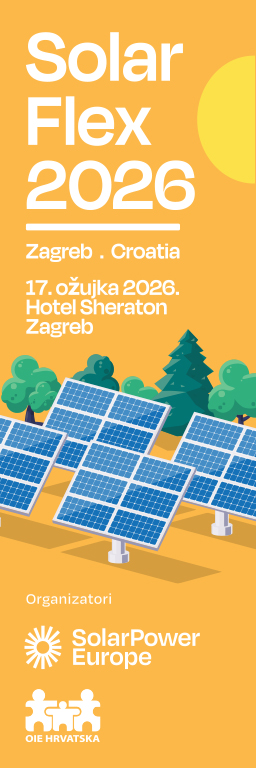Industry without cheaper energy, local communities without revenues, renewables without a future
Zagreb/Brussels, 17 September 2025 – The Renewable Energy Sources of Croatia Association (OIEH), together with the European associations SolarPower Europe and WindEurope, has addressed a joint letter to the European Commission, warning of a severe crisis in Croatia’s energy sector.
While the Croatian Government is gradually phasing out subsidies for electricity prices for households and businesses, the development of renewables – the only lasting solution for lower bills and reduced imports – has come to a complete halt. Croatia is already facing infringement proceedings for failing to implement the EU Renewable Energy Directives (RED II and RED III), which are not just “paper targets” but a key mechanism for ensuring energy security and independence – matters of strategic importance for Croatia and its citizens.
The signatories are urging the European Commission to use all available instruments and call on the Croatian Government to take immediate action: adopt a 0 €/kW grid connection fee, open the balancing market to renewable producers, and integrate electrification and energy storage into national plans.
At present, 60 projects with a combined capacity of 3.5 GW (solar, wind, geothermal and battery storage) worth over €3 billion are blocked. Investors have already paid €25 million to the state in energy permits – the first in a costly series of required documents – which will start expiring by the end of this year due to the ongoing stalemate. As a result, projects risk losing their investments irreversibly, while local communities will lose out on significant revenues they would have received from their realization. At the same time, Croatian industry is being deprived of the opportunity to sign long-term power purchase agreements (PPAs) with renewable producers that would secure more competitive energy prices and strengthen their position on European and global markets.
Grid connection fees – the bottleneck blocking investments
The development of new projects larger than 10 MW has been frozen since 2022 because HERA (Croatian Energy Regulatory Agency) has not adopted a unit price for connection to the transmission grid. Instead, HOPS (Croatian Transmission System Operator) is attempting to shift the costs of grid modernization – planned more than a decade ago and unrelated to new projects – onto renewable energy developers. This inflates project costs by 30–40%, rendering them unviable.
Such a financing model is not in line with European practice, where 80% of EU Member States rely on EU funds and national budgets, not project developers. Earlier this year, the Minister of Economy announced a 0 €/kW connection fee and flexible contracts to stimulate investment in battery storage, but this promise has not yet been fulfilled. Without urgent action, as much as 2.5 GW of projects will be abandoned next week once developers receive HOPS’s decisions with unrealistic cost allocations – forcing companies to withdraw from Croatia and jeopardizing investments that could have permanently lowered energy prices.
Dysfunctional balancing market and missed electrification
Croatia’s balancing market is currently dysfunctional. HEP Proizvodnja, a subsidiary of the state-owned HEP Group, is in practice the sole provider of balancing services. At the same time, HOPS – responsible for securing a competitive balancing market – is also state-owned, creating a clear conflict of interest and distorting competition.
Although solar and wind power plants are technically capable of providing balancing services, they are excluded from participation. As a result, HOPS frequently activates extremely costly services at maximum prices, even during hours of high renewable generation. This practice violates EU principles that balancing services must reflect the operator’s actual costs.
Moreover, Croatia lacks a serious electrification plan. In 2022, the share of renewable energy in transport stood at just 2.4% – with only 0.2% from renewable electricity – while the 2030 target is 5.8%, far below EU ambition. The electrification of railway infrastructure, which could significantly reduce emissions and accelerate the transition, remains an untapped opportunity.
The conclusion is clear:
Without the urgent deblocking of renewable energy projects, Croatia will:
-
lose billions in investments,
-
further increase fossil energy imports (already above 25%),
-
and miss both EU and national targets of at least 42.5% renewable energy consumption by 2030.
Attached are the joint letter and annex submitted to the European Commission.














